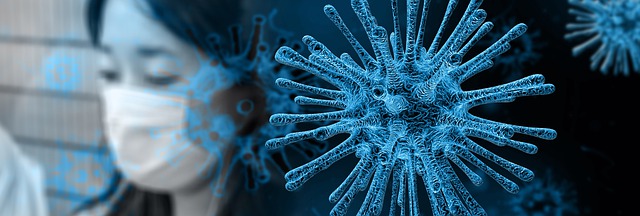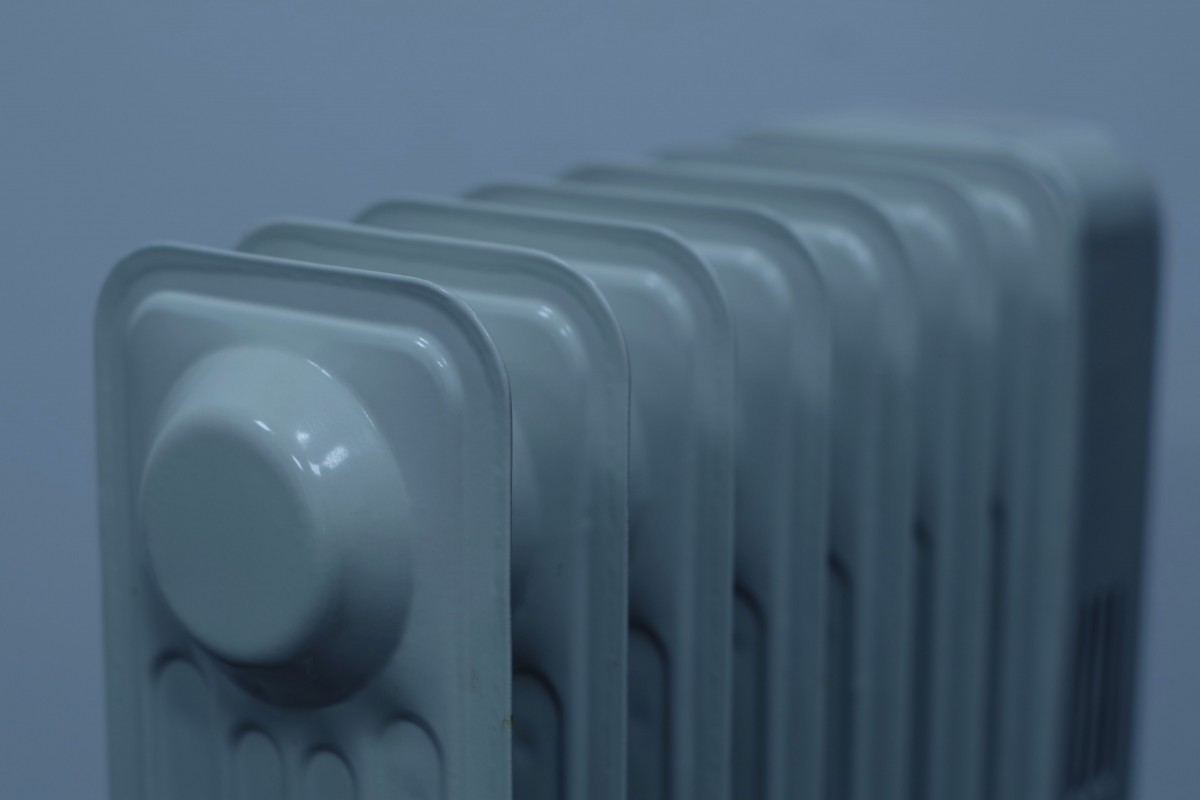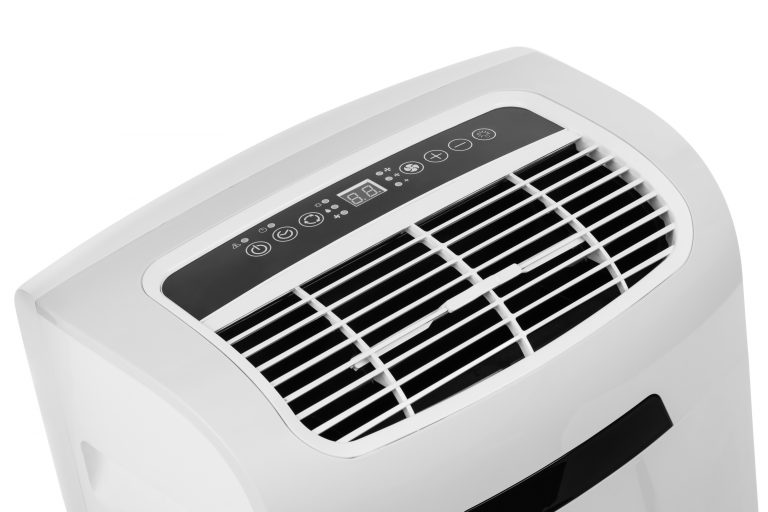Coronavirus and HVAC: Questions and Answers
There are a lot of concerns about the COVID-19 virus and operating/ maintaining your HVAC system. We decided to share the most accurate and up-to-date information available to help you make more informed decisions and understand the Coronavirus and HVAC issues in greater detail.
The fact is, the COVID-19 crisis has developed so quickly that there has not yet been sufficient time for scientific studies to prove definitively whether the virus can be (or is likely to be) transmitted through an HVAC system.
Much of the evidence that exists is based on what is known about similar viruses and other anecdotal reports. The good news is that yet there is no proof that COVID-19 has been transmitted through the ducted HVAC system.
The virus is transmitted primarily through direct contact with an infected person and, to a lesser extent, by touching a contaminated surface. This bodes well for those who are worried about the possibilities of transmitting the virus through a HVAC. However, there are yet some rules, that can minimize (or even extract) the possibility of transmission through air distribution systems:
Can Using Higher Efficiency Filters Trap Virus Particles?
According to some reports, there is a potential for airborne transmission, which may raise alarm bells for HVAC owners. Some of the virus particles in the droplets are said to be small enough to remain airborne for a long time, meaning that infectious particles can travel through the HVAC system, thus creating the opportunity for them to infect someone who breathes the same air.
Fortunately, HEPA filters (high-efficiency particulate) have been proven to control the spread of airborne particles and organisms such as viruses and bacteria for decades.
While these high-efficiency air filters are predominantly used in healthcare facilities, they can be installed in residential HVAC systems to filter out biological pollutants carried through the airspace. This halts the virus in its tracks and prevents it from recirculating around your home and potentially infecting healthy people.
However, it is important to note that HEPA filters are only around 99% percent effective at catching particles down to 0.3 microns in size. Unfortunately, Coronavirus particles are much smaller than this, measuring an average of 0.125 microns in size. Nonetheless, viruses tend to attach themselves to much larger particles when they are airborne, which means that the HEPA filter will catch the vast majority of virus particles that pass through the system. However, there may be a minute percentage that still makes it through.
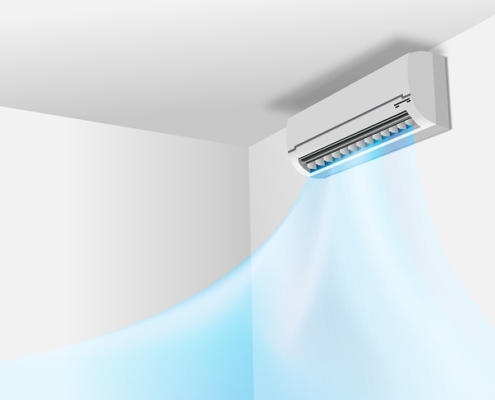 Will Installing UV light or Ionization-based Air Cleaners Destroy Virus Particles?
Will Installing UV light or Ionization-based Air Cleaners Destroy Virus Particles?
While the HEPA filter traps the virus, it will not kill it immediately. Instead, the virus will remain alive inside the filter, increasing the likelihood that some particles may pass through and make their way into the breathable air space in your home. If you’re wondering how long does Coronavirus last in your HVAC system, in some cases, it can live as long as 7-10 days.
Fortunately, UV light destroys viruses by damaging their DNA and preventing them from replicating. Installing a PCO UV light system is said to kill up to 90% of all microorganisms living on the HVAC ducts and evaporator coils, stopping them from re-entering the air space.
With that being said, it’s important to understand how to sanitize the surfaces of your HVAC system in case they become infected. This is where ionization-based air cleaners come in.
They are typically mounted on the indoor blower housing and break pollutants down as they pass through the HVAC system. As the virus passes through, the ionizer removes the hydrogen particles from the atoms which remove their energy source, killing them instantly.
Using a UV light and ionization system together would give you the best chance at killing any virus microns entering your HVAC system.
How Helpful Can Increasing Humidity Levels Be in Deactivating Airborne Particles?
Studies have shown that certain humidity levels can help to deactivate airborne particles and help lower the likelihood of transmission. However, when the humidity in a building is kept too high or too low, the virus can spread faster, so make sure you keep an eye on the humidity level in your home.
In general, it is advised to keep indoor humidity levels between 40-60% to minimize the risk, as this is the level where the virus is considered to be at its least infectious. Consider installing a humidity sensor to monitor these levels.
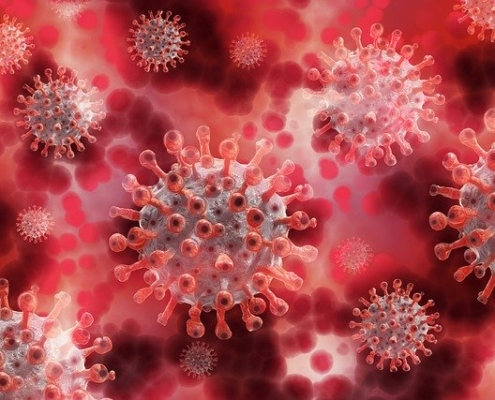 Can Increasing Ventilation Dilute Virus Particles?
Can Increasing Ventilation Dilute Virus Particles?
While research on the Coronavirus itself is limited, one study looking at SARS and H1N1 viruses concluded that “increasing ventilation rate can effectively reduce the risk of long-range airborne transmission, while it may be of little use in preventing the droplet-borne transmission.”
So far, there is no reason to believe that the Coronavirus would be any different from these viruses in this regard, thus increasing ventilation indoors should go a long way to diluting the virus particles and reducing the chances for transmission.
How Important is Sanitizing Air Conditioning Components Before Seasonal Startup?
If you’re considering starting up your air-conditioning unit for seasonal use, you will want to know how to sanitize the surfaces before doing so. This includes proper cleaning of all the evaporator coils, ductwork, blower units, and replacement of the filters. If you fail to do this, you could end spreading virus particles that have remained in your system during its inactivity. For best results, consult a professional technician to disinfect and sanitize all of the HVAC components.
If your HVAC system has been lying dormant for some time, there is a chance that the filters may not work as they should when you switch the unit on. It’s advised that you replace them with high-grade HEPA filters to give your system the best chance of catching contaminated particles as they pass through.
In addition to this, if your system shows signs of damage at any point, you should conduct emergency AC repair to make sure the system is filtering the air as it should be.
Business Name – Elite Plumbing, Heating & Air Conditioning
Address: 3085 E Post Rd, Las Vegas, NV 89120, United States
Phone Number: 702-263-2665
SCHEDULE YOUR FREE ESTIMATE
We Provide Expert Air Conditioning Services in Las Vegas, NV






